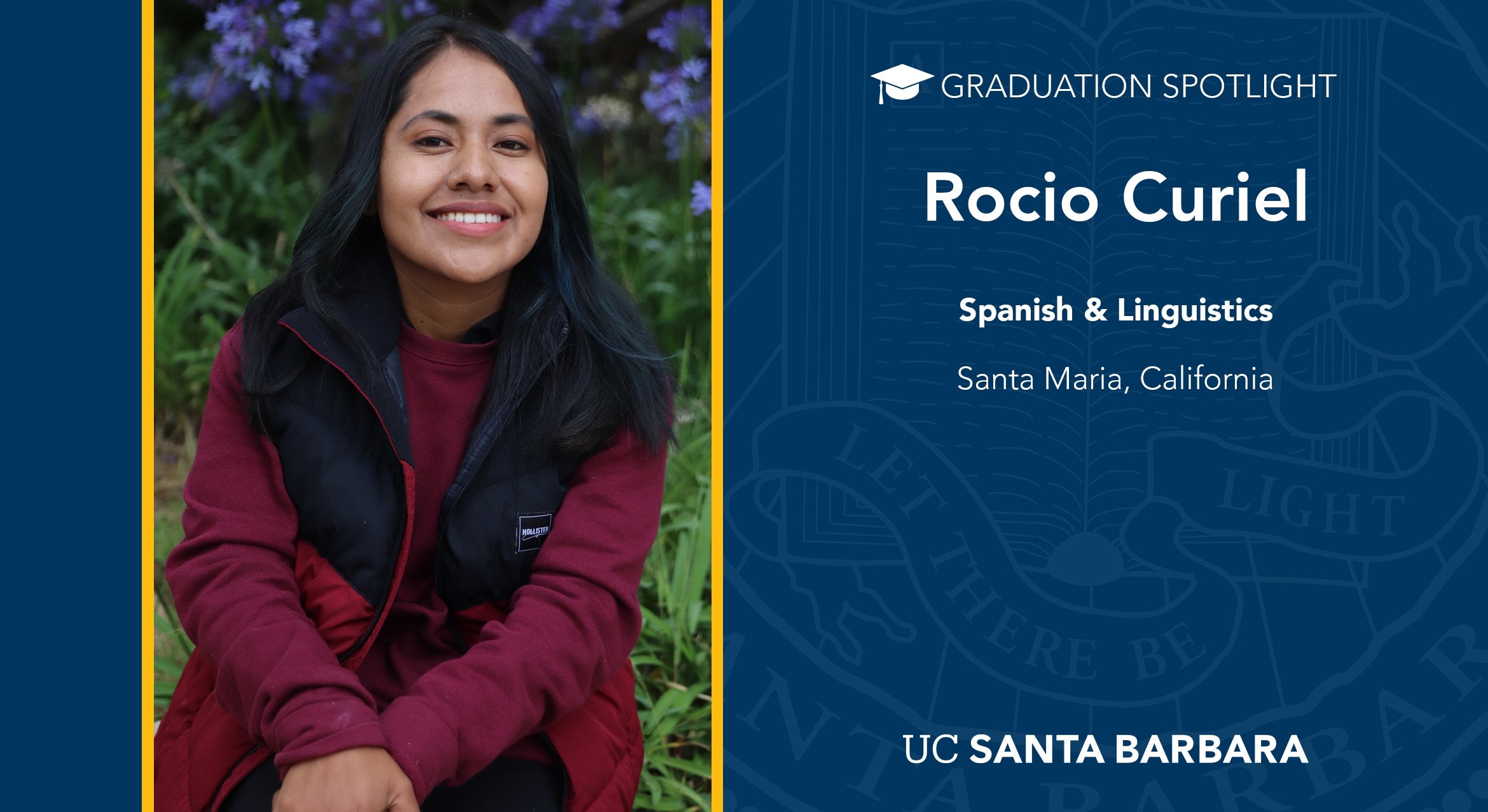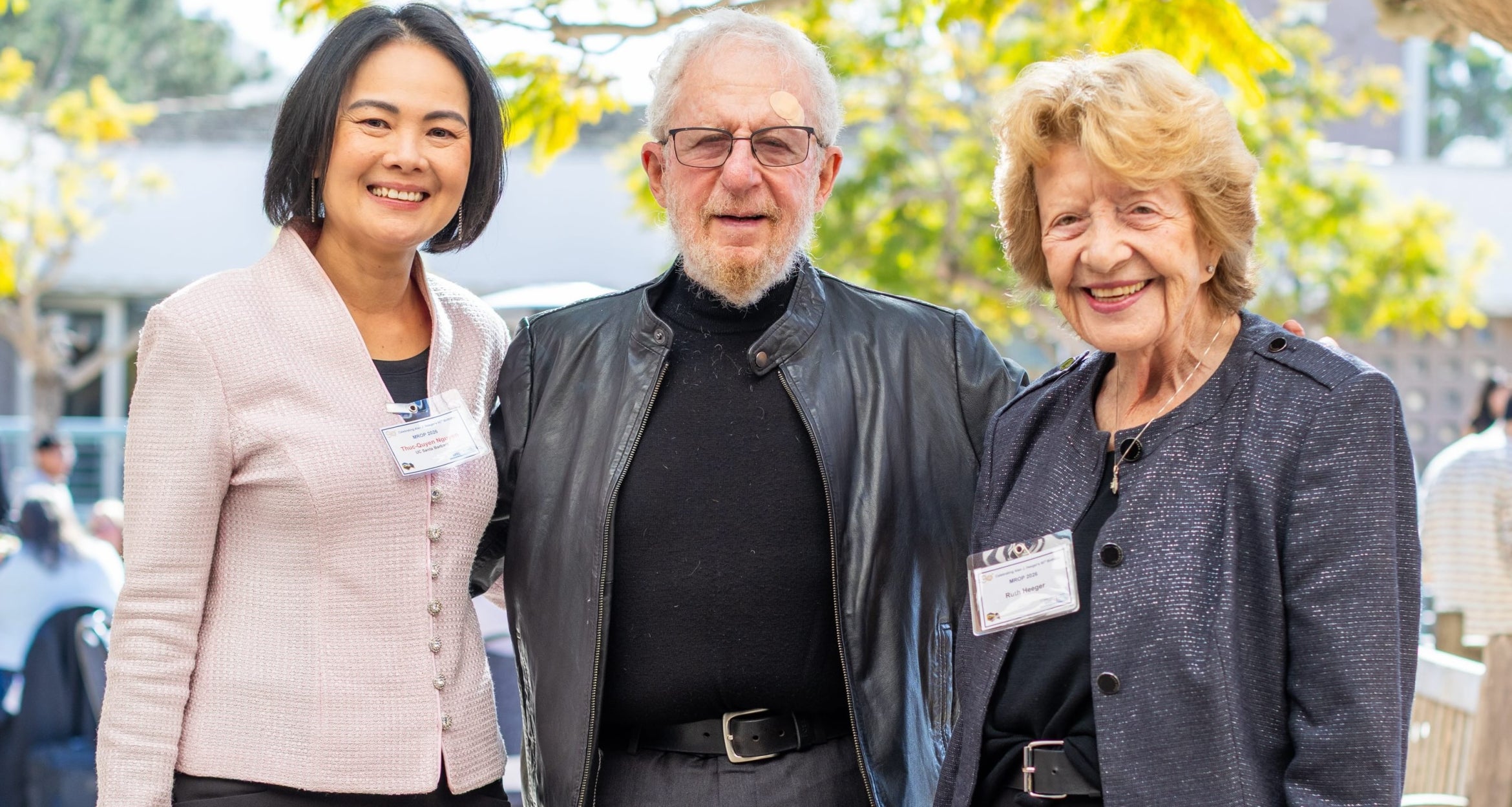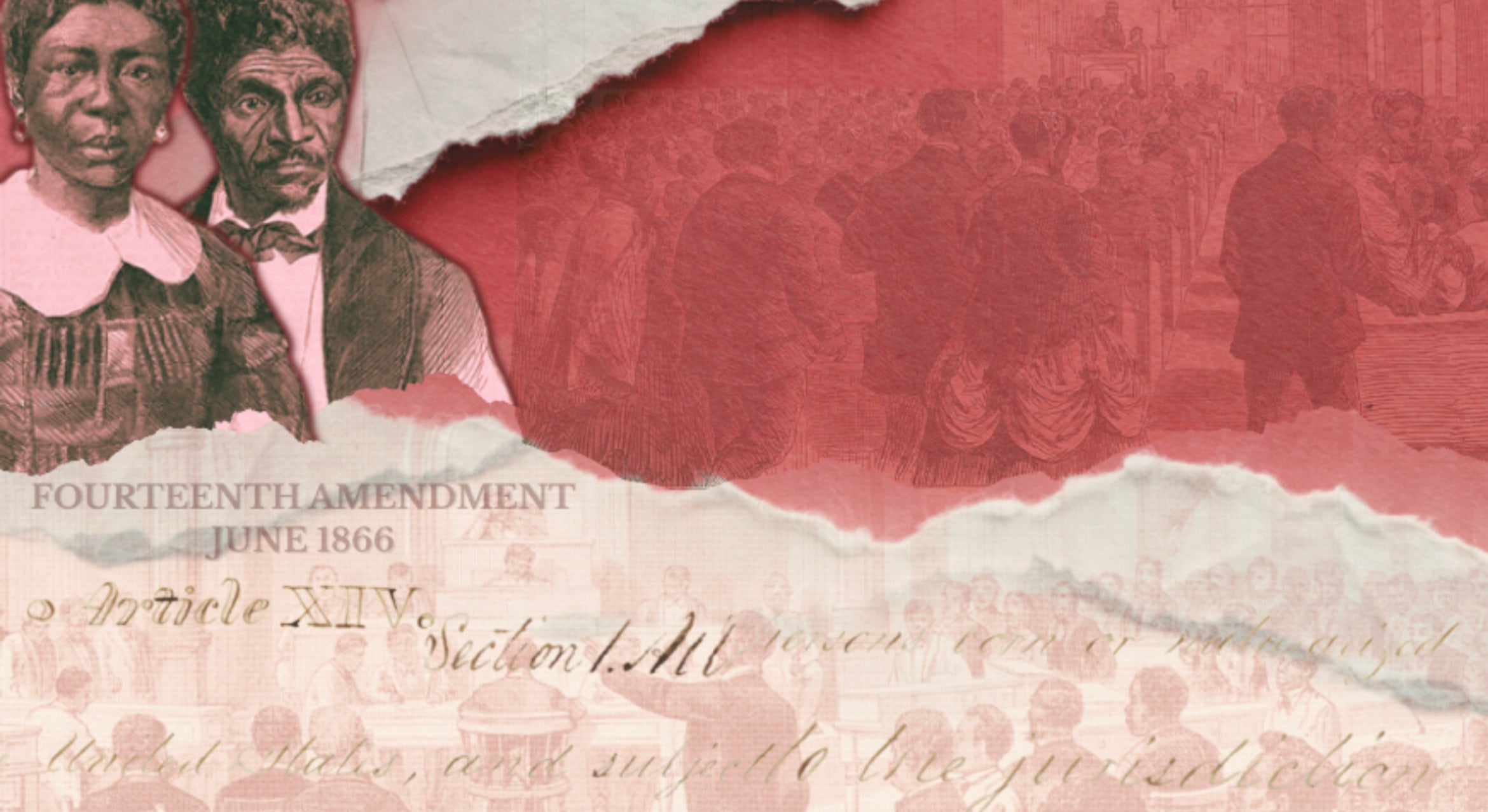
Rocio Curiel’s life has been shaped by language. When she emigrated to the United States from Baja California, Mexico as a 12-year-old girl who did not speak English, it was a source of anxiety and struggle. As she adjusted to life and school in America, her parents’ familiar Mixtec dialect kept her connected to her roots; discovering linguistics in college helped her blossom into a serious scholar who will pursue a Ph.D. in the field.
Now, Curiel will graduate from UC Santa Barbara – leading the student procession for the Humanities & Fine Arts ceremony on Sunday, June 15, at 4 p.m. – as a double major in linguistics and Spanish. She is next headed to UCLA for graduate school.
Though her drive to learn has never wavered, the path to a four-year college wasn’t always so clear. She grew up in a family of migrant farmworkers, picking berries in the fields before she enrolled in community college to begin pursuing a degree in Spanish. “In Indigenous communities from Oaxaca, where my family is from, many of our parents don't believe in education, especially for women,” Curiel said. “They think women should just marry and be dedicated to their family, have kids and that's all.”
Curiel wanted more for herself, and for her two daughters. At first, her goal was simply to get a diploma, something that her sister and husband encouraged her to do. “I do a lot of volunteer work in the farmworker community, and I see them struggle with filling out their papers,” she said. “So I wanted to have a degree and be able to teach Spanish courses, so I can help them.”
She earned her associate’s degree before transferring to UCSB, and found another calling in the process.”One of the requirements of transferring is to take Spanish 100, and that introduced me to linguistics and Spanish Linguistics,” said Curiel. “We never learned how to write in our native Mixtec language. So I thought, I just want to learn how to transcribe it. I know that my language is under-documented, and that's why I became really fascinated with linguistics.”
Curiel aspires to keep the tradition of her native language alive for her ancestors and for future generations, like her own children. She wants them to know where they come from, but also to understand the transformative power of education, she said. “I want to help them once their time comes to go to college. I want to be there for them, be able to support them, give them advice, or just understand them. It can be very difficult to be a first-gen student.”
As a parent of a 9-year-old and a 3-year-old, Curiel’s all-nighters tend to look a little different than those of your average college student. “Sometimes it’s super hard,” she said. “At the beginning of the quarter, we all got sick, and one of my daughters had to be hospitalized because she got pneumonia.”
She often feels the tension of competing priorities. “They want my time and attention the most whenever I am studying, and it’s very difficult. You just have to be super responsible with your time management,” Curiel said. “But, getting an education is my goal, and I am willing to struggle to achieve my goal.”
Curiel said that she was able to persevere in part because of resources she found at UCSB. “I was really happy to get involved into the ONDAS Student Center, also EOP, because they provide a lot of support. And also since I'm part of the Promise Scholars Program, I was able to find someone to talk to when I feel like I'm kind of lost.”
Through ONDAS, Curiel met a graduate student who suggested that she apply for the McNair Scholars Program. “That is where I found a community,” she said. “They share a lot of similar lived experiences to mine.” She also found a mentor in Dr. Daina Sanchez, a professor in the Department of Chicana and Chicano Studies who also speaks an Indigenous Oaxacan language. “When I met her,” Curiel said, “I thought, I want to be like her one day.”
She continued: “Minority students need to see that representation. Sometimes the imposter syndrome hits hard and it's difficult, but when we see that there are others like us with similar roots, we can get super motivated.”
Curiel is well on her way to becoming an inspirational figure herself. She hopes to eventually work as a professor who researches under-documented languages and helps revitalize Indigenous languages.
Most of all, she wants her unconventional journey to a college degree to help her children realize that anything is possible. “What gives me the greatest joy,” Curiel said, “is that I am breaking barriers for my daughters and opening a path for them and future generations as well.”
Communications Manager, Information Technology Services
(805) 893-2206
noradrake@ucsb.edu



